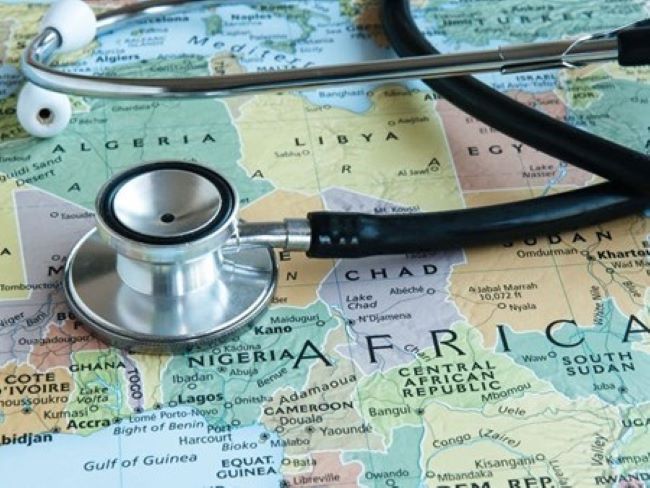
 African Export-Import Bank (Afreximbank) has committed a two billion dollar facility to the “Africa Health Security Investment Plan” to support the health product manufacturing ambition of the continent.
African Export-Import Bank (Afreximbank) has committed a two billion dollar facility to the “Africa Health Security Investment Plan” to support the health product manufacturing ambition of the continent.
The commitment was made under a renewed partnership between Afreximbank and the Africa Centers for Diseases Control and Prevention (Africa CDC) on Thursday.
A statement issued by Vincent Musumba, Manager, Communications and Events, Afreximbank, said the cooperation agreement was announced on the sidelines of the Global Forum for Vaccine Sovereignty and Innovation in Paris, France.
Healthcare: LASG floats smart health information platform
Musumba said the initiative would focus on the African Pooled Procurement Mechanism (APPM) and the Platform for Harmonised African Health Products Manufacturing (PHAHM).
He said the initiative was pivotal in addressing Africa’s health investment challenges, promoting economic development, and strengthening health security across the continent.
“ It also intends to complement GAVI’s innovative financing mechanism, the African Vaccine Manufacturing Accelerator (AVMA).
“Which is set to provide up to two billion dollars in financing to African manufacturers of health and pharmaceutical products over the next 10 years.”
He said African pharmaceutical companies faced severe impacts of global health, security and economic challenges, yet they were the drivers of investments and technology advancements that the health sector needs.
“Low investor confidence, lack of appropriate infrastructure, trade-related barriers, and regulatory challenges are some of the constraints to investment in Africa’s health sector.
“While funds might be available, many potential investments do not materialise due to financial and non-financial obstacles.
“Coordinated efforts at the continental level are essential to reverse this trend and align with the New Public Health Order.”
He said closing the investment gap would be crucial to achieving the African Union’s ambition of manufacturing 60 per cent of vaccines needed locally by the year 2040.
“As well as implementing all other countermeasures necessary to ensure self-reliance, especially during crises such as pandemics and outbreaks.”
Musumba quoted Prof. Benedict Oramah, President and Chairman, Board of Directors, Afreximbank as saying:
“We are pleased to be part of yet another momentous event that will change the course of health security in Africa.
“This facility will help strengthen the manufacturing of health and pharmaceutical products in Africa through our comprehensive and existing interventions such as Project Preparation funding, Project and Trade Finance as well as Guarantees.
“Furthermore, we intend to put our full weight behind this facility with equity investments through our subsidiary FEDA – the Fund for Export Development into Africa.”
He quoted Dr Jean Kaseya, Director General, Africa CDC, as saying, “Today is a big day for African vaccine manufacturing as well as health products manufacturing in general.
“This is as we welcome these major investment announcements that will change the face of health products manufacturing in Africa for years to come.
“Protecting our future means investing in our ability to achieve self-reliance on all health countermeasures; vital to accomplish our mission of safeguarding Africa’s health.”
Musumba said the ‘Africa Health Security Investment Plan’ was built on three key pillars which include Technical Assistance and Advisory Services, Investment Project Pipeline and Regulatory and Normative Support.
He said the Africa Health Security Investment aimed to tackle Africa’s health investment challenges, promote economic growth, and enhance health security across the continent.






















